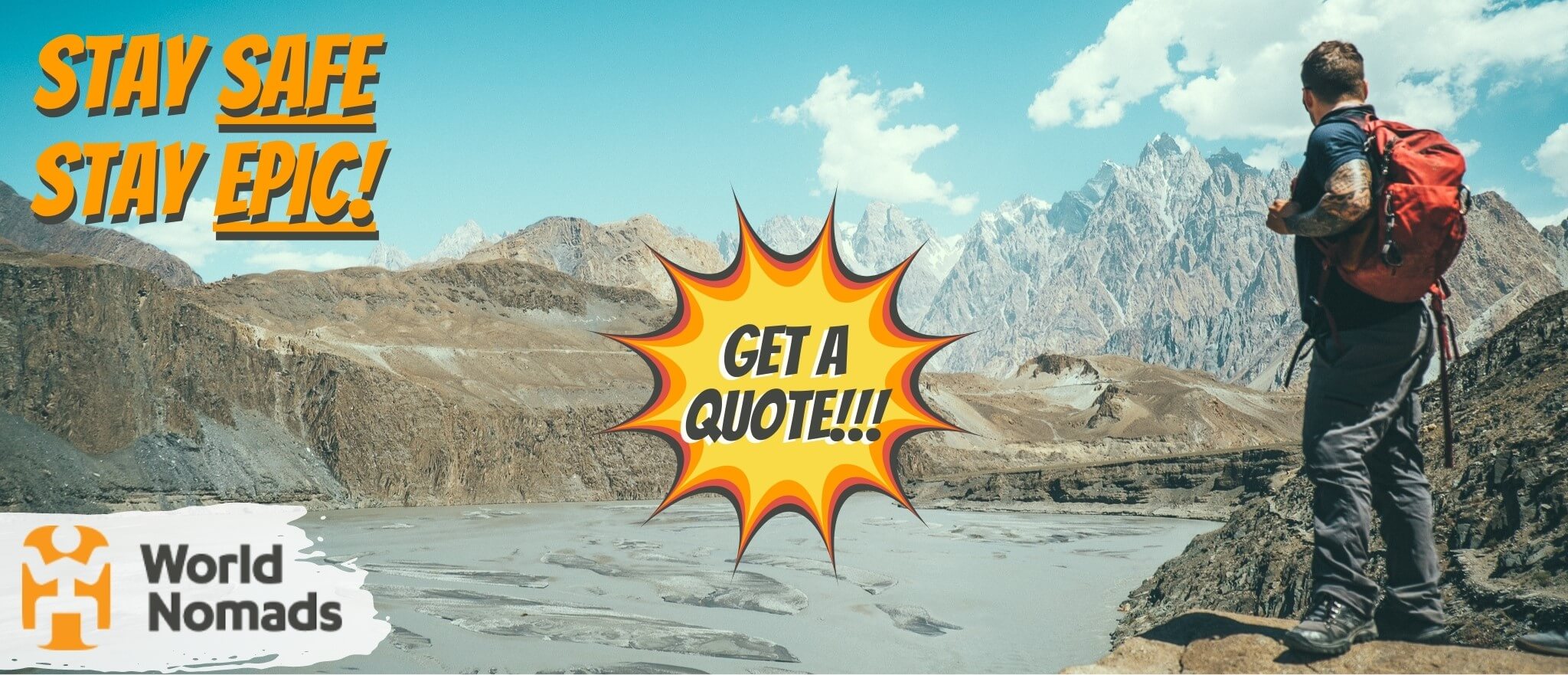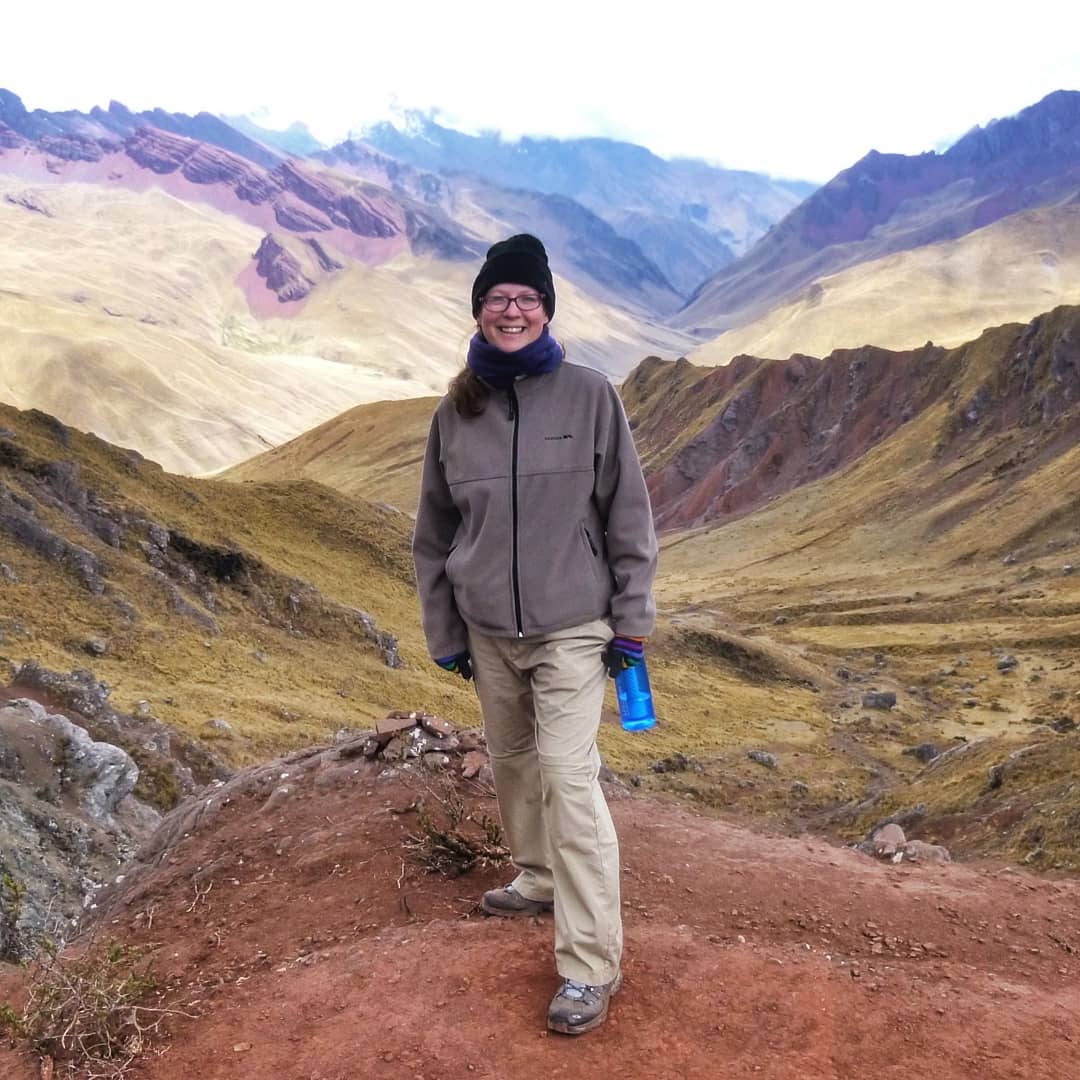Brazil is a pretty famous destination. With everything from the famed Carnival destination of Rio de Janeiro, a world wonder, the Amazon Rainforest, and a whole lot of culture and history, it is awesome.
That said, Brazil isn’t always safe. Crime in Brazil is a big deal. This country is just as famous for injustice, poverty, and favelas (slums) as it is for everything else. Violence, petty theft, dodgy Uber drivers, kidnappings are not rare.
You have every right to be sitting there wondering, “Ok, so is Brazil even safe to visit then?”
We want to help answer that question by providing a comprehensive guide to staying safe in Brazil. We have no issue with visiting destinations that may feel ‘unsafe;’ this just means that you need to travel smart.
This includes using your common sense when you’re walking around cities as much as it includes understanding the local culture of a country. You may be worried about being a victim of crime in Brazil, and we are here to help you avoid that with a ton of safety tips.
No matter what kind of traveller you are, we’ve got you covered with our Amazon-sized guide to Brazil safety.

Unlock Our GREATEST Travel Secrets!
Sign up for our newsletter and get the best travel tips delivered right to your inbox.
How Safe is Brazil? (Our take)
Brazil is perfect for backpacking and one of the coolest destinations in South America. The cities are famous for beaches, partying and vibrant culture, but Brazil is also home to the largest portion of the Amazon Rainforest. Biodiversity, anyone?
Brazil isn’t what we’d call ‘safe’ though. Not really anyway.
There’s a lot of danger out there, people. Brazil has everything from untamed wilderness to a high crime rate. This means traveling to Brazil requires an extra bit of know-how.
Cities see a high level of crime, which means thefts, muggings, and clashes between gangs and police. You’ll have to be especially vigilant during big festivals like Carnival, and around the favelas. The latter is essentially a shanty-town and can be very dangerous places.
Brazil is not always safe in terms of the weather either. During heavy rains, flooding and landslides can occur and can actually cause a lot of deaths.
Whilst not exactly the safest country in the world, we would still say that Brazil is safe to visit.
There is no such thing as a perfect safety guide, and this article is no different. The question of “Is Brazil Safe?” will ALWAYS have a different answer depending on the parties involved. But this article is written for savvy travellers from the perspective of savvy travellers.
The information present in this safety guide was accurate at the time of writing, however, the world is a changeable place, now more than ever. Between the pandemic, ever-worsening cultural division, and a click-hungry media, it can be hard to maintain what is truth and what is sensationalism.
Here, you will find safety knowledge and advice for travelling Brazil. It won’t be down to the wire cutting edge info on the most current events, but it is layered in the expertise of veteran travellers. If you use our guide, do your own research, and practise common sense, you will have a safe trip to Brazil.
If you see any outdated information in this guide, we would really appreciate it if you could reach out in the comments below. We strive to provide the most relevant travel information on the web and always appreciate input from our readers (nicely, please!). Otherwise, thanks for your ear and stay safe!
It’s a wild world out there. But it’s pretty damn special too. 🙂
Is Brazil Safe to Visit? (The Facts.)
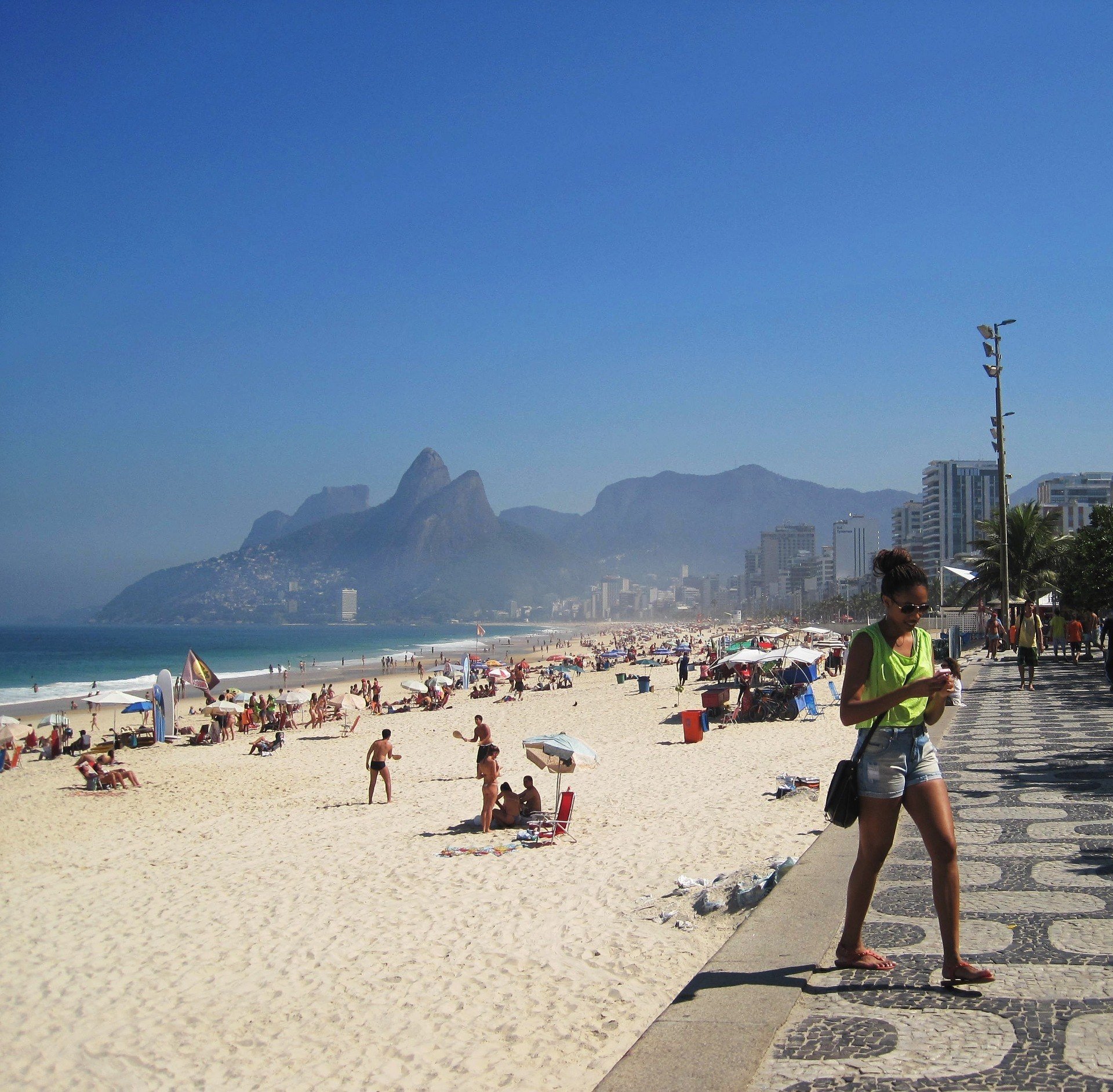
Tourism in Brazil is growing each year and is a key part of the Brazilian economy. It’s one of the major South American destinations, and only second in Latin America after Mexico. Pretty popular.
The thing with Brazil though is that there is a high rate of violent crime. We mean robberies and murders. Brazil is also an importer of cocaine and is part of an international drug trafficking route, so there are lots of gangs – and poverty – relating to that.
On the 2020 Global Peace Index, Brazil ranked 126th on a list of 163 countries. So in terms of general peace, safety, security, it’s not so hot.
There’s also a rise in unrest along the border with Venezuela over immigration. The Venezuelan authorities have closed the border since February 2019, which means any continuing immigration is illegal. Caution is advised traveling anywhere near this area.
On top of that, some favelas can be super dangerous. Volatile ones can have high levels of crime and the security situation can change from relatively safe to completely not without warning. Shootouts between police and gangs are regular and unpredictable.
All that being said, it’s still possible to visit Brazil safely just so long as you know what you’re doing. Being vigilant traveling smart, and avoiding certain perilous activities will help to ensure a great trip. All in all, we’d say that Brazil is safe to visit right now – with the proper preparations and research obviously.
Safest Places in Brazil
When choosing where you’ll be staying in Brazil, a bit of research and caution is essential. You don’t want to end up in a sketchy area and ruin your trip. To help you out, we’ve listed the safest areas to visit in Brazil below.
Florianópolis
The capital of Santa Catarina is Florianópolis, and it may be the closest thing to perfection. Florianopolis, or Floripa, is located on a large island connected to the mainland by a single bridge. Life in Floripa is very easy. The beaches are pristine, the pace is relaxed, and amusements are everywhere. Floripa can be more resort than a city sometimes, but no one really cares or notices.
The far south of Floripa is totally undeveloped. You can find beaches that are literally abandoned because they require a hike to get to. Lagoinha do Leste is the best example of this phenomenon.
São Paulo
If there is one word to describe São Paulo, or Sampa, it’s “sprawl.” São Paulo is big. I mean really f*cking big. There are nearly twenty million people living in the metropolitan area. You could walk around the city for weeks and come nowhere near seeing all of it. If you find your niche though, it can be hugely fun.
Due to its gross proportions, São Paulo is one of the most energetic and lively cities in the world. The art is unparalleled, the nightlife is never-ending, and action is constant. Luckily, the best parts of São Paulo are located in the central and western districts.
Pantanal
The Pantanal is actually considered the biggest freshwater ecosystem in the world. The chances of seeing animals are huge here; reportedly even better than the Amazon actually. Local wildlife include capybaras, giant anteaters, rheas, jaguars, and lots more!
Given its size, there are several ways to access the Pantanal. The best entryways are via Campo Grande and Bonito in the southern state Mato Grosso do Sul. Campo Grande is a large, modern city while Bonito is an eco-tourist destination that offers plenty of outdoor activities.
Places to avoid in Brazil
In order to have a safe visit, it’s important to know the areas in Brazil that aren’t super safe. Keep in mind that Brazil is quite a famous tourist destination, so wherever you are, you will have to watch out for pickpocketing and petty theft.
- Porto Alegre – located in the state of Rio Grande do Sul, it’s one of the most dangerous cities in the world due to lots of gang violence and drug wars.
- Salvador – Similar to Porto Alegre, Salvador has a very high crime rate as well. Even locals tend to avoid this city as much as possible.
- Favelas – These are the poorest areas in Brazil. You’ll find most crimes in these areas. While tourists normally don’t end up there, it’s still a good idea to actively stay away
- Anywhere at night – It doesn’t matter where you are in Brazil, it’s always a bad idea to head out at night. Most sketchy characters come out after dark, and you definitely don’t want to meet them. If possible, stay inside or stick with a large group when going on a night out.
It’s important to know that all of the places we’ve just listed CAN be visited, but you’ll require a local guide and do a lot of research beforehand. Some parts of these cities might be safe, but you simply can’t ignore the high crime rates. While tourists do explore these areas, we’d recommend avoiding them completely if you want a really safe trip.
Brazil Travel Insurance
World Nomads’ mission is to support and encourage travellers to explore their boundaries. They offer simple & flexible travel insurance, and safety advice to help you travel confidently.
They’ve been doing it since 2002 – protecting, connecting, and inspiring independent travellers just like you.
Get a quote below or read our in-depth review!
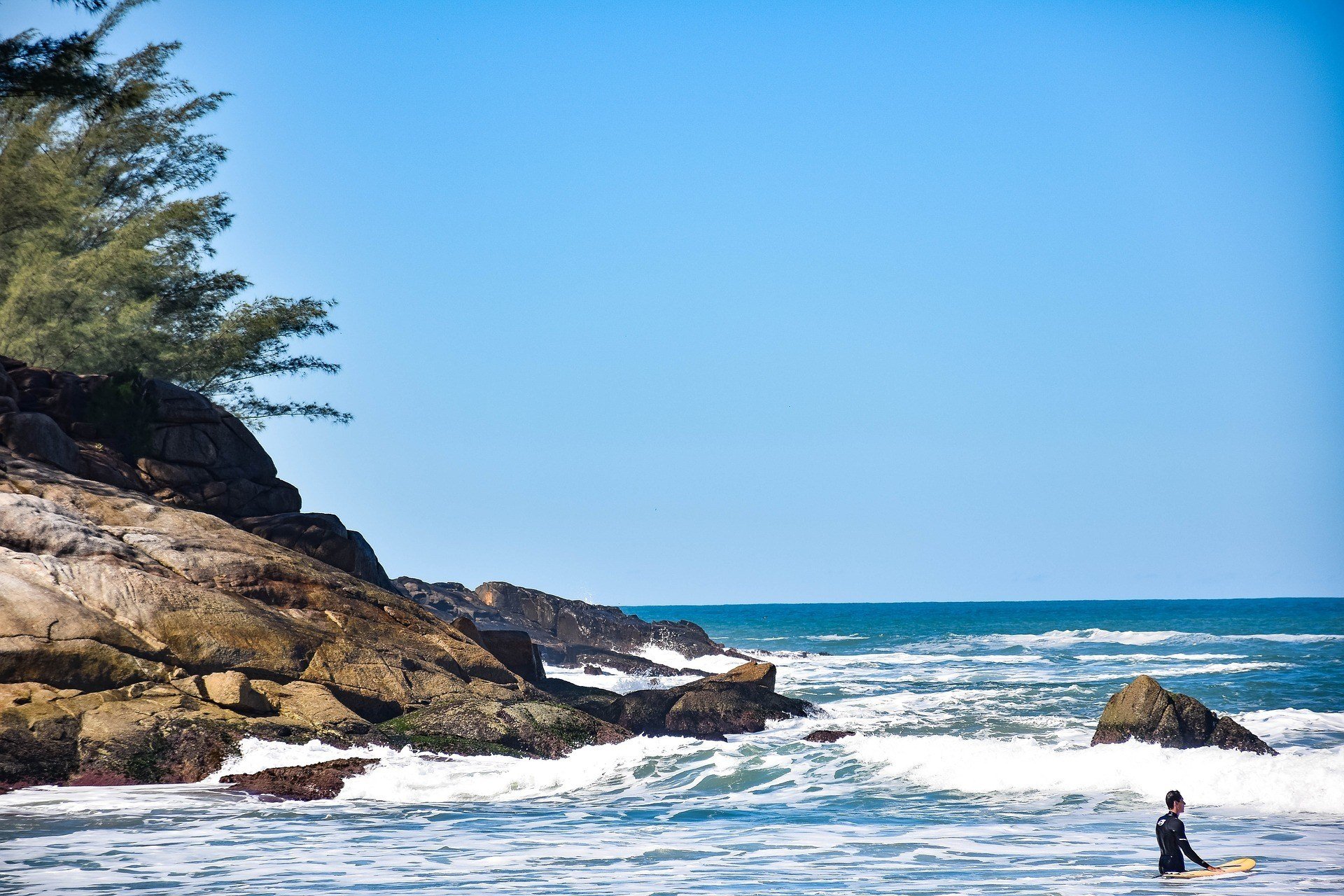
Naturally, you are going to be worried about visiting Brazil. A high crime rate coupled with an unstable political situation and dangerous nature means there’s a lot to think about.
But to help you stay as SAFE as possible on your Brazilian travels, we have compiled a list of our top safety tips for traveling to Brazil.
- Be careful of your surroundings – pickpocketing is common, especially in cities. Minimize risk with a security belt.
- Don’t look rich – flashy jewelry, watches, SLRs, designer handbags, clothing, etc. All of this just advertises you as a target.
- Don’t use your smartphone walking around the street – it could easily get snatched
- Don’t take a tour around a favela – 1) they’re not zoos, 2) the security situation within them is often unstable.
- But know that some favelas are actually pacified – favelas can be peaceful but their safety status is often constantly changing.
- Careful using Google Maps in cities – ‘quickest routes’ can go through favelas. People have actually come to harm by accidentally stumbling into a favela this way. Stick to the main streets – ALWAYS.
- Familiarize yourself with the area – maybe your hostel has a walking tour, maybe you end up looking things up on your maps, but before you head out you should know a little bit about the lay of the land. It pays to look confident.
- Hand over the goods – muggers could be very high and very armed. If someone demands your stuff, best give it.
- Stay away from drugs – trafficking is WIDESPREAD. There are often checkpoints outside nightclubs. Severe penalties, people.
- Don’t leave your bags or anything else on a table/chair at a cafe – they’re likely to go missing.
- Be aware of distraction techniques – even asking for a cigarette can be a way to get you to let your guard down. BEWARE!
- Be VERY careful of your possessions on beaches – some people will just snatch your stuff and leg it.
- And don’t go to beaches at night – it’s basically a good way to get robbed or assaulted.
- Careful when using an ATM – keep your card in sight. Best to head to one in an official place, i.e. a mall, inside a bank.
- Don’t use the ATM if it looks tampered with – or if there are dodgy looking people around.
- Steer clear of demonstrations – these can turn violent. Avenida Paulista, Largo da Batata, Historic Downtown (Sao Paulo), Copacabana Beach (Rio de Janeiro) and Esplanada dos Minesterios (Brasilia) are known for confrontational protests.
- Learn some Portuguese – it will definitely help you get around, read menus, communicate with locals, etc.
- Protect against mosquitoes – cover up and use a DEET-based repellent; dengue fever, yellow fever and zika virus are on the rise.
- Watch out for warning flags on beaches – there are often strong currents, so be VERY careful going out too deep.
- Shark attacks happen in Recife – so don’t go into the water when there are warning signs. People have died.
- Keep an eye on the news – heavy rains lead to flash floods and landslides, not only in the countryside but in poor urban areas too.
- Be aware of rainy season – in the northeast, it’s from April to July; in the south, it runs from November till March.
- Do research on companies if you’re heading out into the rainforest – it’s a dangerous place, so only the best company will do.
There are issues with crime in Brazil – as well as natural disasters to be worried about. But if you follow our tips, keep your belongings close to you, and don’t do anything silly (like walking through sketchy areas of cities early in the morning or late at night), you should be fine.
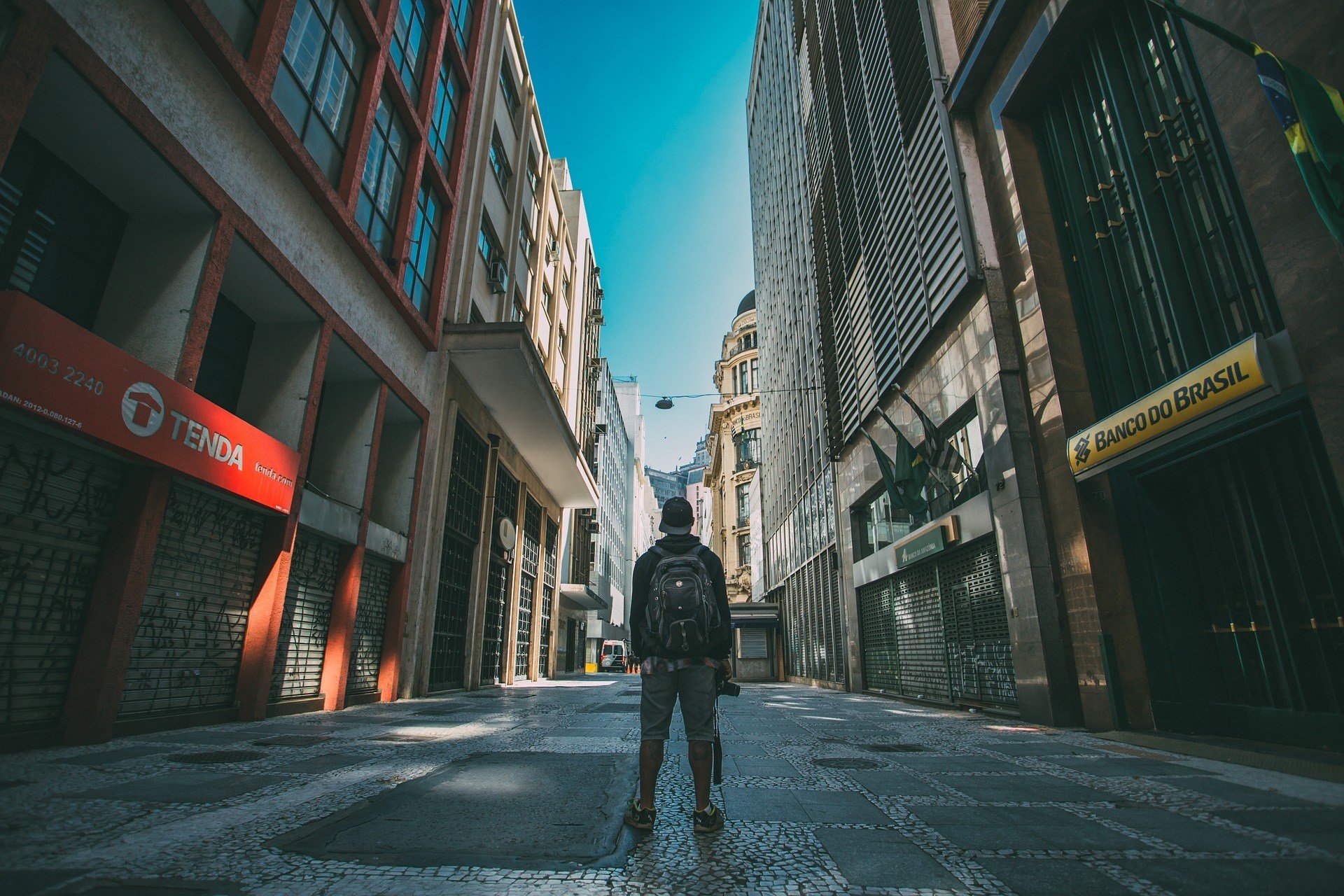
When it comes to solo travel, we’re all about it. There are SO many benefits to traveling the world by yourself. You get to challenge yourself, get to do what you want, when you want; you may learn a thing or two about yourself and grow as a person!
But there are downsides. Aside from getting lonely and bored, you’ll be more of a target by yourself.
Don’t worry though; there are plenty of other solo travelers doing what you’re doing in Brazil. And we’re here to help, too, with some solo travel tips to make it a breeze.
- It’s easy to make friends with Brazilian people. Even if you don’t speak Portuguese, you’ll be able to have at least some sort of chat with a local. They’ll be warm and open, so don’t be shy: strike up a conversation and learn more about this cool country.
- Book yourself into a social hostel. Make sure you do research, read reviews, and stay in a place that’s perfect for you. It’s a good way to get chatting to other travelers, maybe even make a travel buddy, and help to beat the solo travel blues.
- Take a free walking tour if your hostel offers one (they probably will). This is a good way to get acquainted with the city you’re in, learn more about the area and Brazil as a whole, and even make friends.
- Ask the staff at your hostel about the safety of the area. They’re likely going to be locals, or know A LOT more about the local area than you.
- Travel as light as possible. Carrying too many things around is a) uncomfortable and b) will mean there is just more for you to keep tabs on. Keep everything in one bag – and not too heavy either.
- Don’t walk around yourself at nighttime around sketchy areas. This is just ASKING for trouble. You are going to be so much more of a target if you walk around by yourself anyway, regardless of it being a dark and deserted area.
- We’d recommend not taking anything unnecessary to the beach if you’re going by yourself. It’s easy for things to go missing/get stolen.
- Keep in touch with people. If you don’t have one, get yourself a data sim. Keeping in touch with people is a good way to keep you grounded as you travel around, making sure you don’t get jaded with what you’re doing.
Though it’s a pretty dangerous country in some respects, traveling solo around Brazil is doable; and awesome! The cities here are amazing and full of life, the beachside destinations are incredible, the food is immense, the nature is breathtaking, and there’s a chance you’ll have it all to yourself.
Is Brazil safe for solo female travelers?
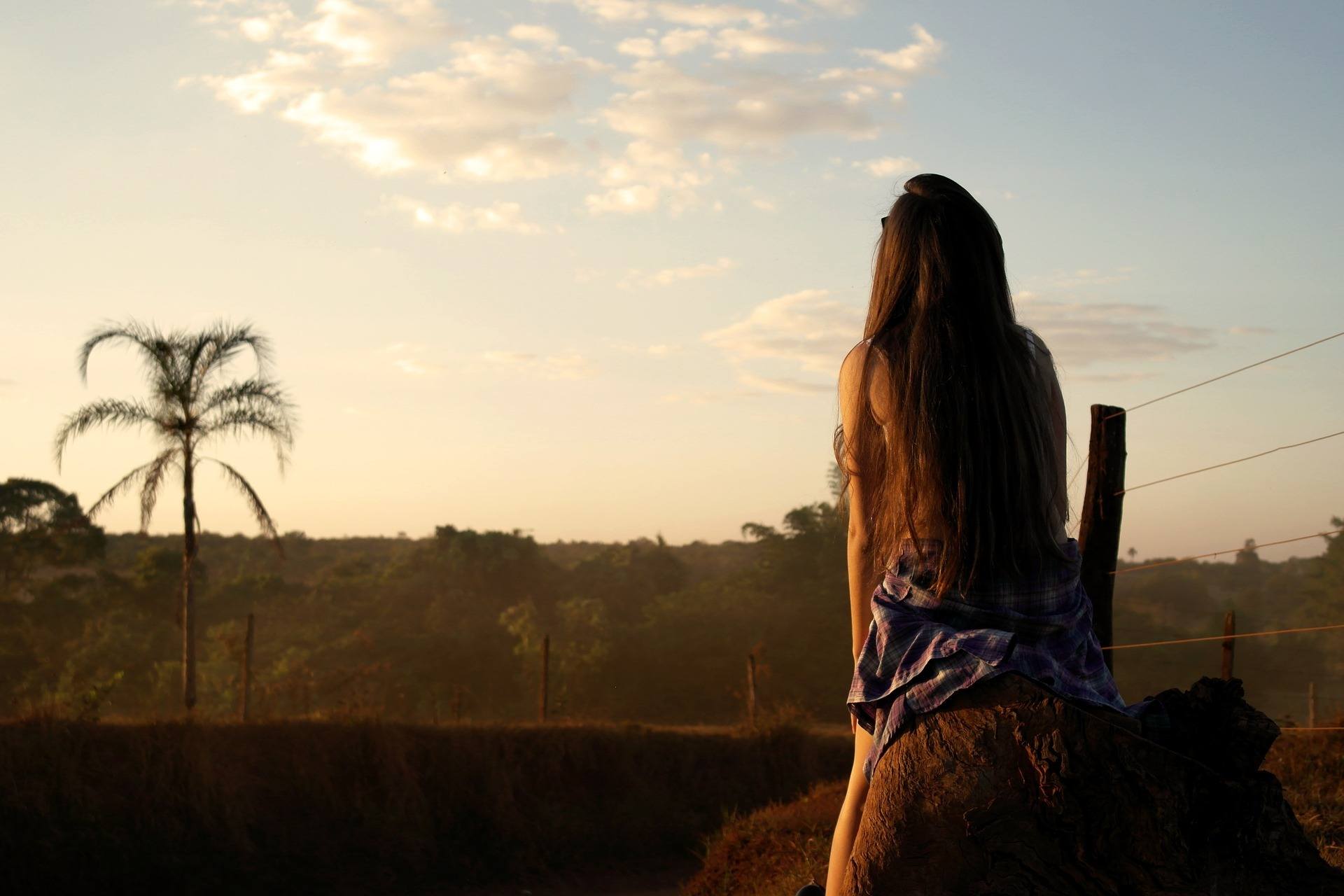
Like many other countries, it’s no surprise that Brazil isn’t the best place for solo female travelers. The crime rates aren’t low, for one thing. Depending on where you go, you’ll have a different experience. Big cities are more liberal, traditional areas… not so much.
Most of Brazil is safe for a woman traveling by herself – especially if you stick to the well-trodden routes. But just like anywhere else in the world, there will be extra safety precautions you should take as a solo female traveler. So here are some tips to help keep you secure.
- In some places, mainly in northeastern rural areas, there may be more curiosity about you being a solo female traveler. Being aware of the varying ethnic and cultural landscape of the country will definitely help you in your travels.
- You should NOT be hitchhiking by yourself in Brazil. We wouldn’t feel safe recommending anyone use this means of getting around here. In Brazil, this really isn’t a safe thing to do and can end up very badly.
- There are areas in the north and west of the country that seems to be dominated by men. If you were planning to go to these regions of Brazil, try not to go by yourself and instead find someone else to buddy up with.
- It’s not a good idea to go to bars and clubs by yourself in cities. Try to find some people to buddy up with if you want to head out to bars and clubs. You may receive hassle/unwanted attention whilst out; show disinterest, or that you’re not happy with it and it’s likely to stop.
- So in order to get yourself some friends, stay at a well-reviewed hostel. Make sure there are favorable reviews from other solo female travelers. This will help you find the most secure place possible.
- When you’re out, keep an eye on your drink and don’t accept drinks from strangers. Drink spiking is a reality. Also, drinking too much isn’t a smart move either.
- In places like Copacabana and Ipanema, you’re going to be able to wear whatever the heck you want. Everyone else does (men included – those speedos!). Other places aren’t so liberal. A good rule of thumb is to look at how other women are dressed to gauge appropriate ways to dress.
- Use Uber to get around at night. This is just the safest way to get around after dark in Brazil. Walking around by yourself at night, not so much.
- If you’re feeling overwhelmed, get yourself on a tour. This is a good way to see the country safely. It’s not a cop-out by any means.
Though it may not seem like a safe place to travel, plenty of solo female travellers do make their way to Brazil and have an awesome time.
You’ll just have to travel smart. In Brazil particularly, this means you won’t really be able to do a lot of stuff outside of the big cities by yourself. Jump on a tour, but make sure you research and find the best company for you. This is probably the safest way.
More on Safety in Brazil
We’ve covered the main safety concerns already, but there are a few more things to know. Read on for more detailed information on how to have a safe trip to Brazil.
Is Brazil safe to travel for families?
Well, Brazil can be a bit of a challenge, to say the least.
We’re not going to lie though – it is an awesome destination. It’s definitely going to be an experience for you and your family.
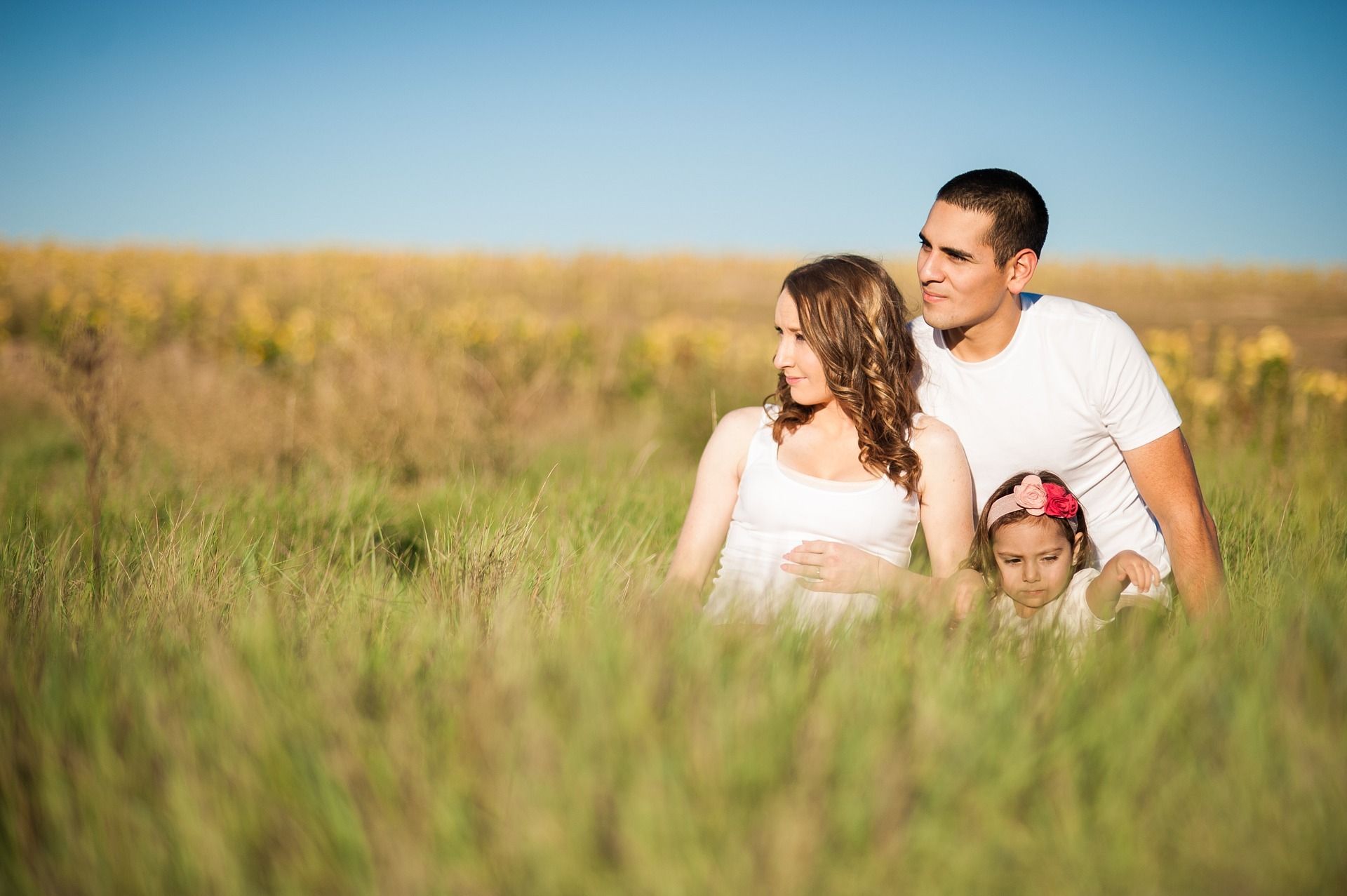
There IS a family-friendly atmosphere in Brazil and it’s a family-based society. Whilst there are things to do in Brazil with families, you will have to plan to ensure things run smoothly.
- Basics: you’ll want insect repellent (complete with DEET), anti-malarial medication, sunscreen, and clothes that will cover your children up against critters and the sun. Dengue fever and malaria are both present, but mostly in the rainy season from November to March.
- It’s crucial to make sure your kids are eating clean food and keeping hydrated when in Brazil. Small children are more at risk from things like food poisoning.
- Public transport can also bring up issues when traveling with children. Nightmare journeys on hot, sweaty buses versus forking out a lot of money for flights around the country.
- It can be handy to travel around Brazil by car, but you’ll need your own car seats. This can be a lot of hassle, especially for short family trips.
Though challenging, Brazil is safe to travel for families. It’s best to go between November and January, it’s not as hot and crowded as other times in the year. You really will have to plan though.
Is it safe to drive in Brazil?
Driving in Brazil is doable, but it can be a headache – especially in cities.
However, if you’re the kind of person who likes to travel at your own pace, traveling by car in Brazil will be a rewarding experience. It definitely comes with a few risks though.
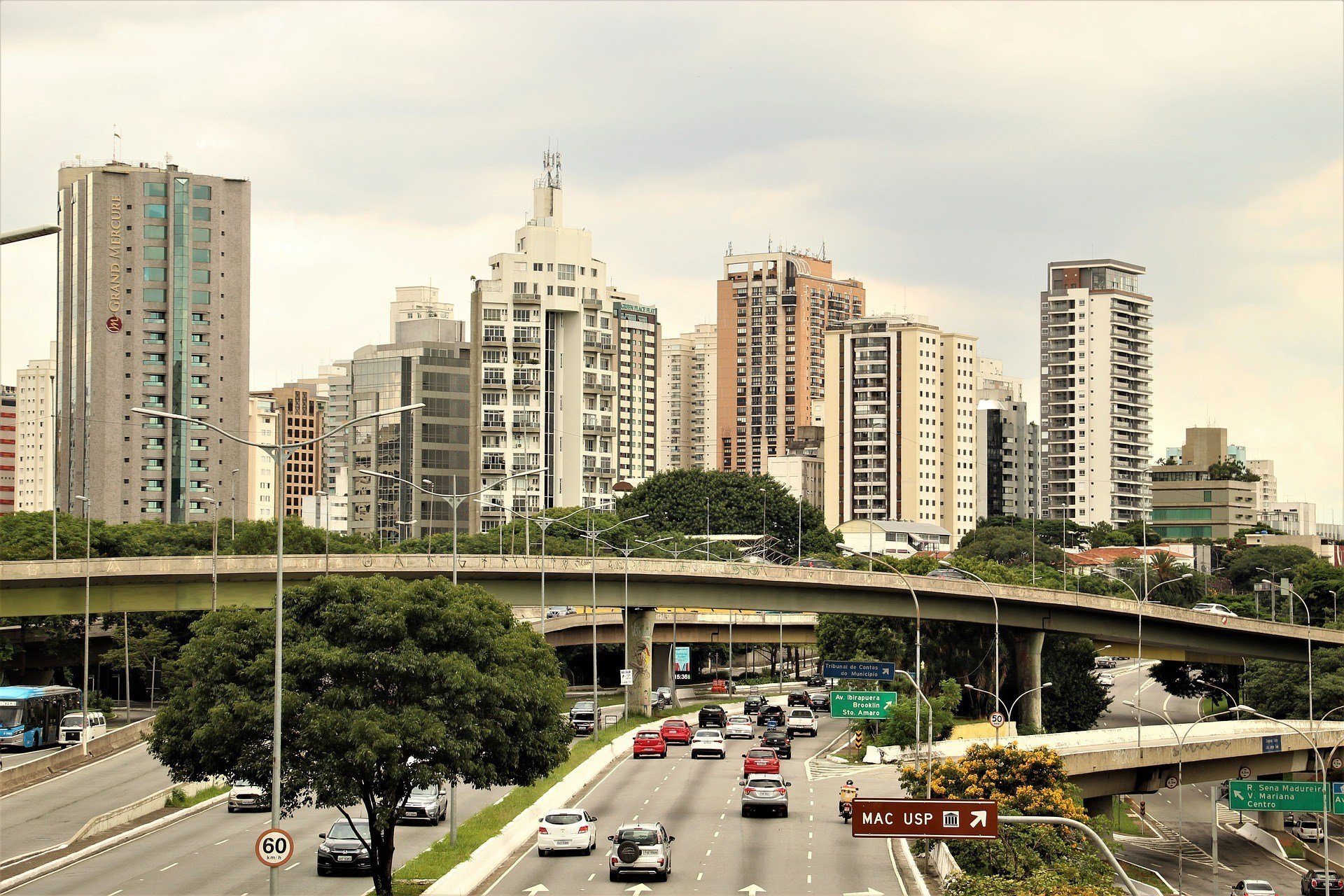
- In cities and on busy roads, carjacking is an issue. It’s important to keep your doors LOCKED and your windows CLOSED when driving – especially at traffic lights.
- Brazilians can be quite passionate drivers. That means driving aggressively, not paying attention to road signs or one-way streets.
- Another issue is poor signage. Broken-down cars also just get left in the road.
- Oh, and torrential rain during the rainy season isn’t exactly fun – it can be dangerous sometimes.
- As you may have guessed, Brazil actually has quite a high proportion of road accidents; thousands of people are killed on the road each year. This indicates bad driving and road standards. To drive in Brazil, it’d REALLY help to be a confident driver.
- Driving at night can be deadly. Although there’s a zero-tolerance policy on drunk driving, nighttime drivers are often a little worse for wear.
- High-trafficked roads such as the highway between Rio and Sao Paulo are particularly hazardous.
So, no. Brazil isn’t the safest country to drive in. But if you really want to see the country at your own pace, driving yourself can be so much more convenient than public transport in Brazil.
Is Uber safe in Brazil?
Like in MANY countries, Uber has had some turbulent times in Brazil.
The relationship between Uber and Brazil has been a bit of a rollercoaster.
It arrived in 2014, BUT some rides ended up in kidnapping, robbery, and even murder. There have been some pretty nasty experiences of people using Uber in Brazil, and a whole string of complaints from Brazilian users.
However, Uber has responded by investing $70 million into a Sao Paulo office that supports Uber’s efforts in Brazil.
For the most part, Uber is safe to use in Brazil, but you shouldn’t feel a false sense of security just because you’re using Uber.
To avoid trouble, only accept rides from drivers with lots of positive reviews. There will be tons of options to pick from, so don’t be afraid to cancel if you don’t feel good about a driver’s record (or lack thereof).
Uber is available in 40 Brazilian cities.
 Sleep safe! Choose your hotel, hostel or Airbnb ahead of time so you’re not last-minute booking a less-secure place.
Sleep safe! Choose your hotel, hostel or Airbnb ahead of time so you’re not last-minute booking a less-secure place.
You’ll find our favorite accommodation sorted by neighborhood in the following guides:
Are taxis safe in Brazil?
It pretty much goes without saying, but getting a licensed taxi in Brazil is A MUST.
You’ll see them at licensed taxi ranks around all of Brazil’s cities. They come in a load of shapes, sizes, and colors. Make sure you check the company details on the side of the car.
Another way to get a licensed taxi in Brazil is by using a taxi app. These work like Uber, obviously. But hail it when you’re inside a building so you’re not hanging around on the street with your phone out.
One popular taxi app is 99Taxis. Very convenient.
Outside of the big cities, the taxis won’t have meters. This means having to negotiate a price. Do this before you get in, always.
Generally, taxis are pretty safe in Brazil. Safer than Uber even. They’re cheap, they’re reliable, and a good way to get home at night.
Is public transportation in Brazil safe?
Public transport in Brazil is FAIRLY safe… depending on where you are and what type of public transport it is.
The city buses are pretty reliable. In any city, these will run frequently. For most Brazilians, this is what they use.
On these local buses, crime can be an issue. In urban areas, robberies occur more between 4 and 9pm. The evening rush hour(s) basically.
In Rio de Janeiro and Sao Paulo, you can use the metro!
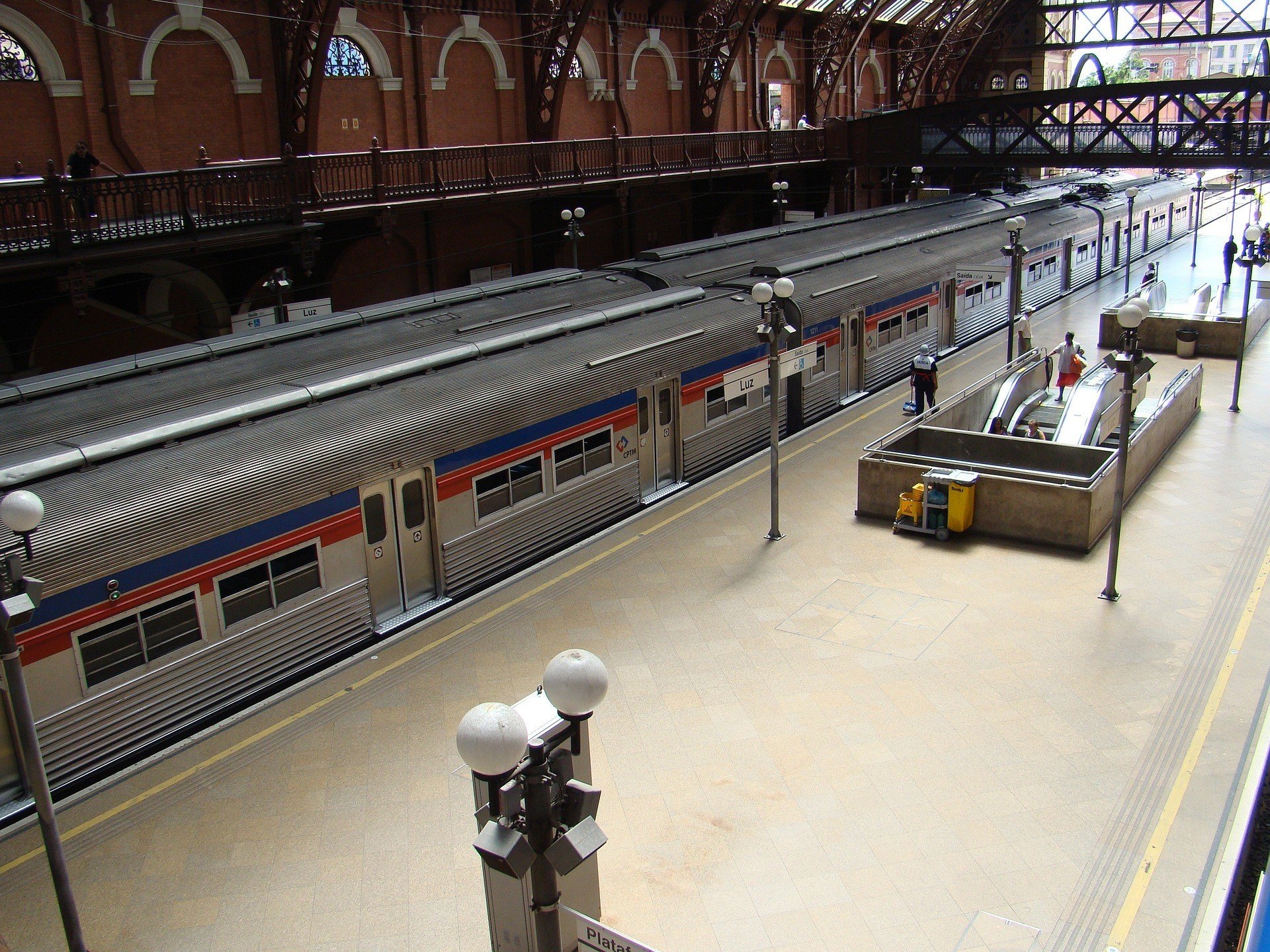
National railways have been scaled back and are now pretty limited. There have been a few ‘security incidents’ on the network, too. Unless you want to do a few scenic trips, we wouldn’t really recommend getting the train anywhere in Brazil. There are a handful of those you can embark on, the steam train between Sao Joao del Rei to Tiradentes for example.
Flying is also expensive, but probably the safest.
Buses in Brazil
That leaves the humble traveler with intercity buses. These are surprisingly safe. Most are well maintained and comfortable. You’ll be able to get a long-distance bus from all the big transport hubs.
Long distance bus travel is popular in Brazil. But like in most places, do your research on companies before you travel. Consider the following:
- On any bus, but especially the cheap options, do NOT put valuables under the bus.
- Keeping valuables within eyesight (i.e. under the seat in front of you or overhead and across the aisle).
- Paying a little extra also helps with potential breakdowns. Go for a bigger company and they’re more likely to have a back-up bus that will pick you up and carry on the journey.
- There are three different classes for long distance buses. Companies that offer air-con, fully reclining seats, refreshments and pillows for long distance journeys can cost twice as much as the cheapest option. But then again… 24-hour PLUS journeys might deserve more than a rudimentary seat.
- Book one of these by rocking up at the bus station. Though that’s not traveling smart. We’d recommend booking one via ClickBus, a bus app/site. This will give you time to research as well. No-brainer.
Is the food in Brazil safe?
Food in Brazil is pretty dang tasty. There’s loads to try.
But you WILL want to stay safe in Brazil when it comes to dining as not everywhere will be up to scratch with food hygiene standards. We’ve prepped a list of our best food safety tips for Brazil so you can eat your way around the country with ease.

- Eat at places that are busy with local people. These are likely to be trusted by locals (duh), therefore they will be very tasty, and you shouldn’t have a problem with getting sick from eating there.
- When it comes to street food vendors, try to go to places that are cooking up fresh food right before your eyes.
- Sometimes the street food vendors selling on beaches can be a bit dodgy. Just make sure they at least SEEM clean.
- There is a REAL abundance of seafood in Brazil. Just be careful when it comes to shellfish. If it seems a bit off, smells weird, tastes weird, DON’T EAT IT.
- Make sure any fruit or vegetables that you buy can be cleaned and peeled by yourself before you eat them.
- Watch out for tourist traps. These places often aren’t as clean, are just out to make money, and won’t be serving the tastiest food anyway.
- And last but not least, WASH YOUR HANDS. You could eat at the cleanest place ever, but if your own hands aren’t clean, you could be making yourself ill.
- Traveling with an allergy? Research ahead of time how to explain your allergy. Keep in mind that store owners and restaurant staff might not know all the foods that contain allergens, so it’s helpful to know the names of some of these too. If you’re gluten-free, pick up a handy Gluten-Free Translation Card with descriptions of Celiac disease, cross-contamination risk, and local Brazilian ingredients in Portuguese.
Then there’s a load of international cuisine. Let’s not forget that Brazil has the largest Japanese population outside of Japan. Portuguese, African, and Italian influences abound. Just be smart with where you choose to eat and your tastebuds and tummy will thank you!
Can you drink the water in Brazil?
Drinking water in Brazil is safe…
…but not always.
It’s safe to drink the water in Rio and Sao Paulo.
However, most hotels will offer filtered water. That’s because the unfiltered stuff is pretty awful and does not taste good. You’ll want to bring a reusable water bottle so you can take some of this liquid gold with you instead of using disposable water bottles.
Outside of these cities, and especially in remote areas, we wouldn’t trust the liquid that comes out of taps. Bring iodine tablets, water purifiers, or just boil the water – a minute should do, but add some extra boil time for higher altitudes.
Another way to feel confident about your water is to bring along the GRAYL GEOPRESS. If you’re ever unsure, you can light it up just in case for that extra peace of mind (and stomach).
It’s always good to bring an insulated water bottle to take your clean water with you and keep it cool during your day adventures.
Is Brazil safe to live?
There are definitely some issues when it comes to living in Brazil. This is mostly to do with crime.
You will probably have to live very differently to how you’re used to.
It’s the kind of place where everybody knows somebody who has been affected by crime in some way. And where lots of people live in apartments with security or in gated communities – or both.
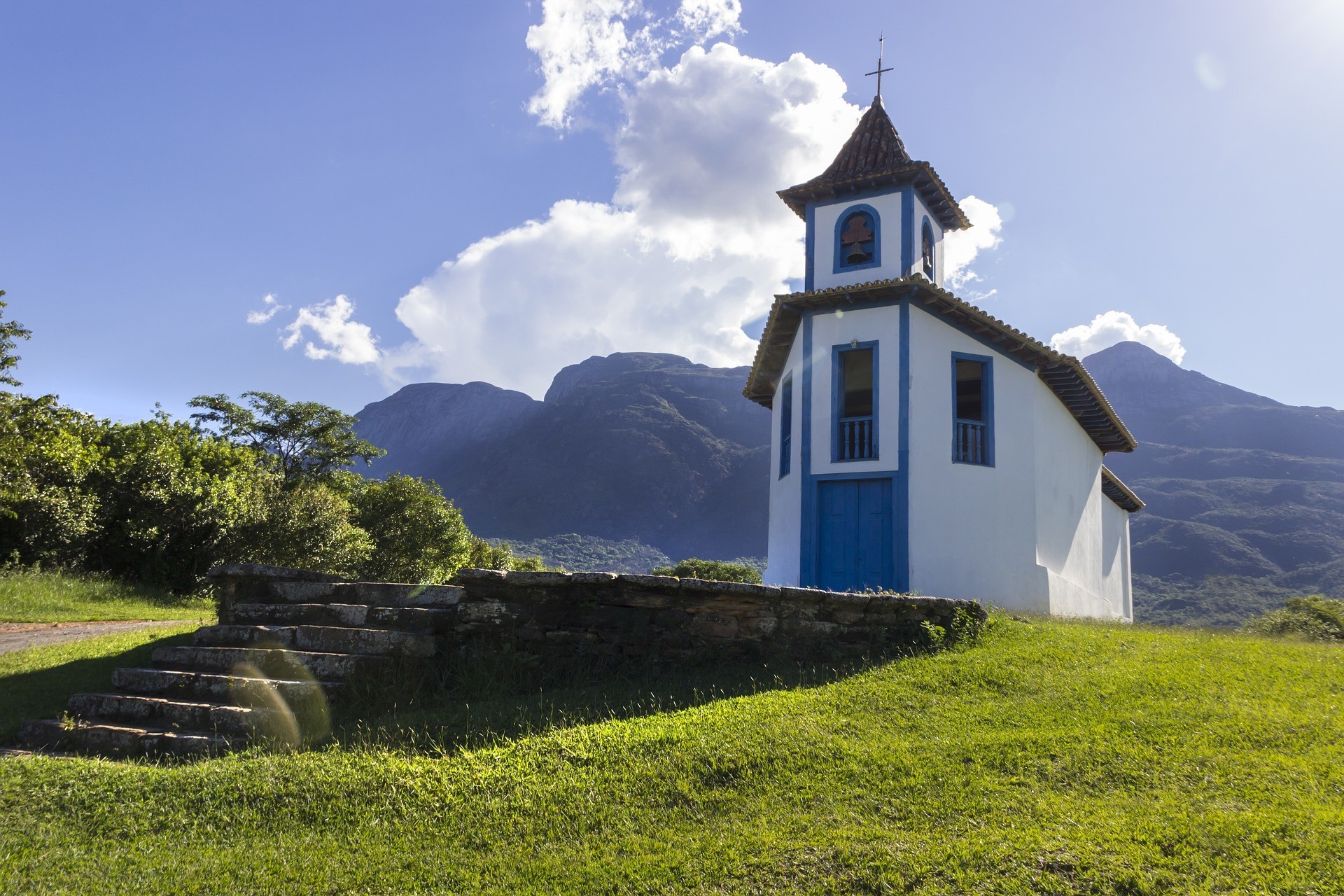
Brazil has a culturally diverse landscape. A lot of foreigners do live in Brazil. There will definitely also be cultural differences that you’ll have to deal with when you’re living here.
Basically, it’s not 100% safe to live in Brazil and your security will always depend on the city. Even then, it depends on where in that city you live. Even more specifically, what you can afford in terms of apartment, driver, whatever, contributes greatly to your safety as well.
Think long and hard about where you want to base yourself in Brazil before you take the plunge. This one deserves research. A LOT of it!

A new country, a new contract, a new piece of plastic – booooring. Instead, buy an eSIM!
An eSIM works just like an app: you buy it, you download it, and BOOM! You’re connected. It’s just that easy.
Is your phone eSIM ready? Read about how e-Sims work or click below to see one of the top eSIM providers on the market and ditch the plastic.
Buy an eSIM!Is it safe to rent an Airbnb in Brazil?
It’s definitely safe to rent an Airbnb in Brazil, but you’ll have to choose the right area obviously. With the reliable rating and review system, you won’t just get to choose from awesome homes, but you can also read about the place you’re about to book in full detail. With the previous guest reviews, you’ll know exactly what to expect.
But keep in mind that hosts can also review their guests. This normally guarantees a very respectful and easy visit from both sides.
Is Brazil LGBTQ+ friendly?
Brazil can be incredibly LGBTQ+ friendly, but you’ll have to be in the right area. Rio de Janeiro for example is known to be a great destination for queer people, while the more rural areas can be a bit conservative and closed minded.
Members of the LGBTQ+ community might face some discrimination, but it’s nowhere near as bad as in other South American countries. Same-sex rights are also pretty far advanced. There are countless of LGBTQ+ bars, restaurants, hostels and other establishments.
FAQs on Brazil’s Safety
Planning a safe trip to Brazil can get quite overwhelming. That’s why we’ve listed and answered the most frequently asked questions on safety in Brazil.
So, is Brazil Safe?
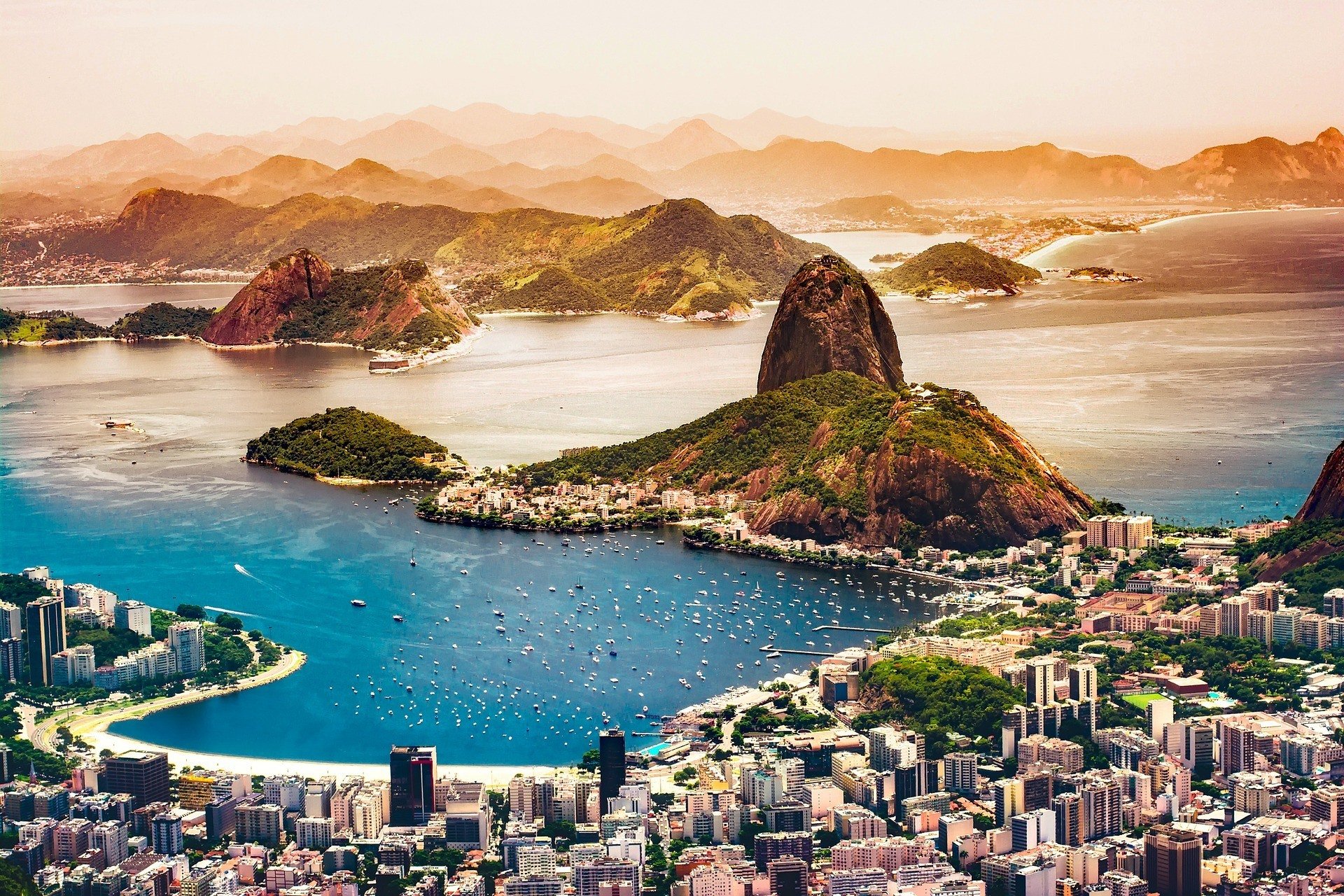
Brazil is such a huge country that it’s difficult to definitively say ‘yes it’s safe’ or ‘no it isn’t safe’. The truth is that it’s basically BOTH.
Areas of some cities are just so unpredictably violent that it would be completely stupid to wander into them. Other times you’ll wonder what all the fuss was about gangs and petty crime. The answer of whether or not Brazil is safe is therefore basically: it depends.
It depends what region of the country you’re in (the northeast isn’t so good for solo female travelers for example), it depends what CITY you’re in, what part of that city, what time of day it is, what sort of public transport you’re traveling on, what sort of clothes you’re wearing, what sort of eatery you’ve chosen to dine in… Yep. You get the idea. There are a lot of variables for staying safe in Brazil.
We would say, then, that the best way to stay safe when you visit Brazil is to just be extra alert at all times. Do research about what areas of the city you should/shouldn’t be in. Be aware of who is around you.
Disclaimer: Safety conditions change all over the world on a daily basis. We do our best to advise but this info may already be out of date. Do your own research. Enjoy your travels!

And for transparency’s sake, please know that some of the links in our content are affiliate links. That means that if you book your accommodation, buy your gear, or sort your insurance through our link, we earn a small commission (at no extra cost to you). That said, we only link to the gear we trust and never recommend services we don’t believe are up to scratch. Again, thank you!


